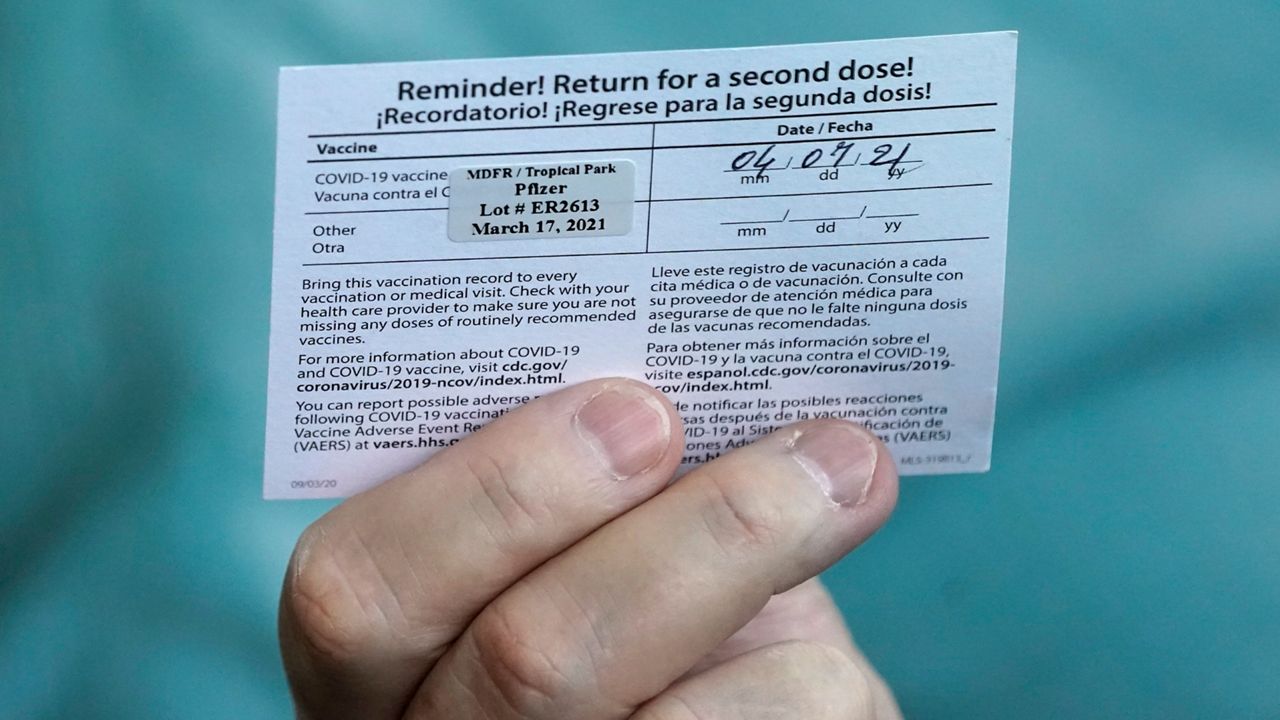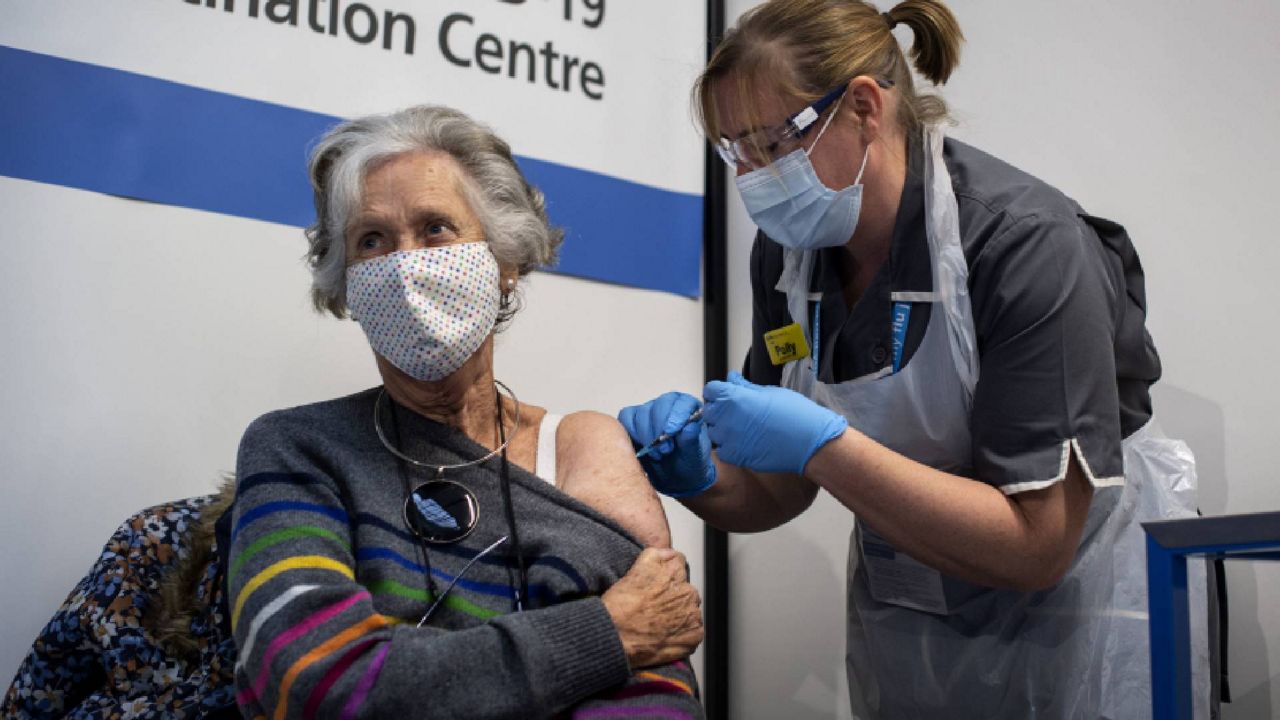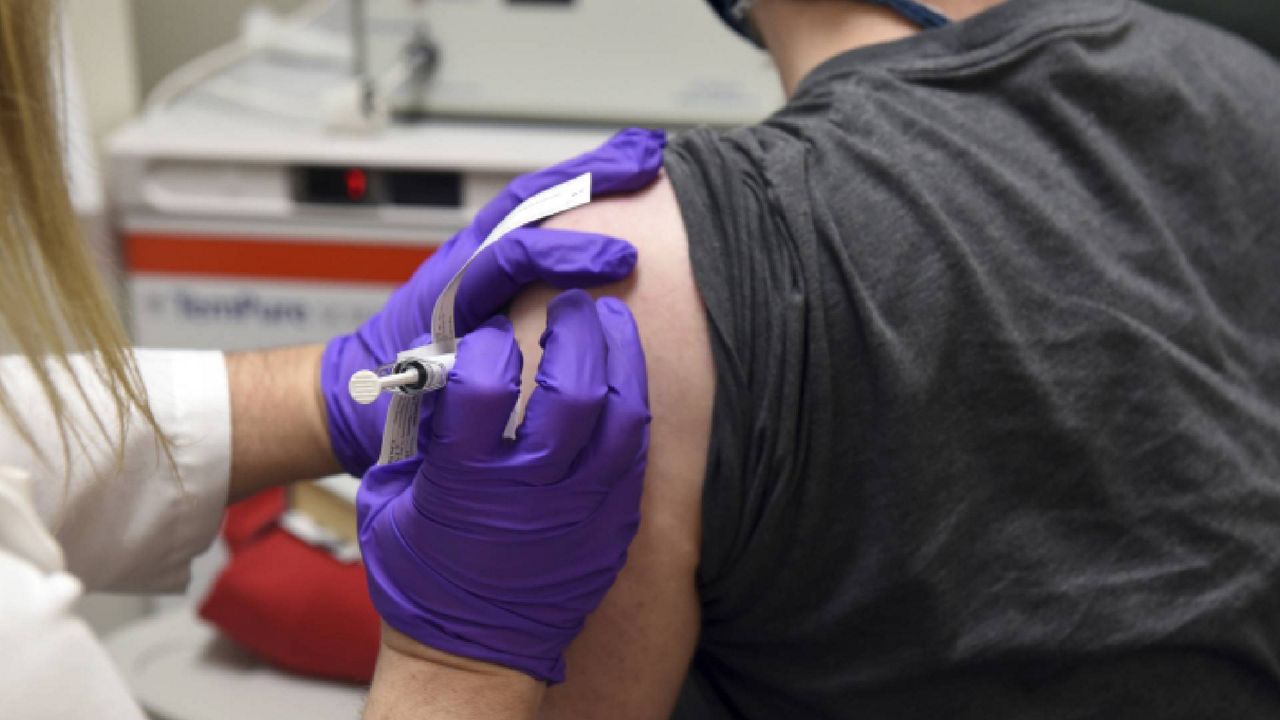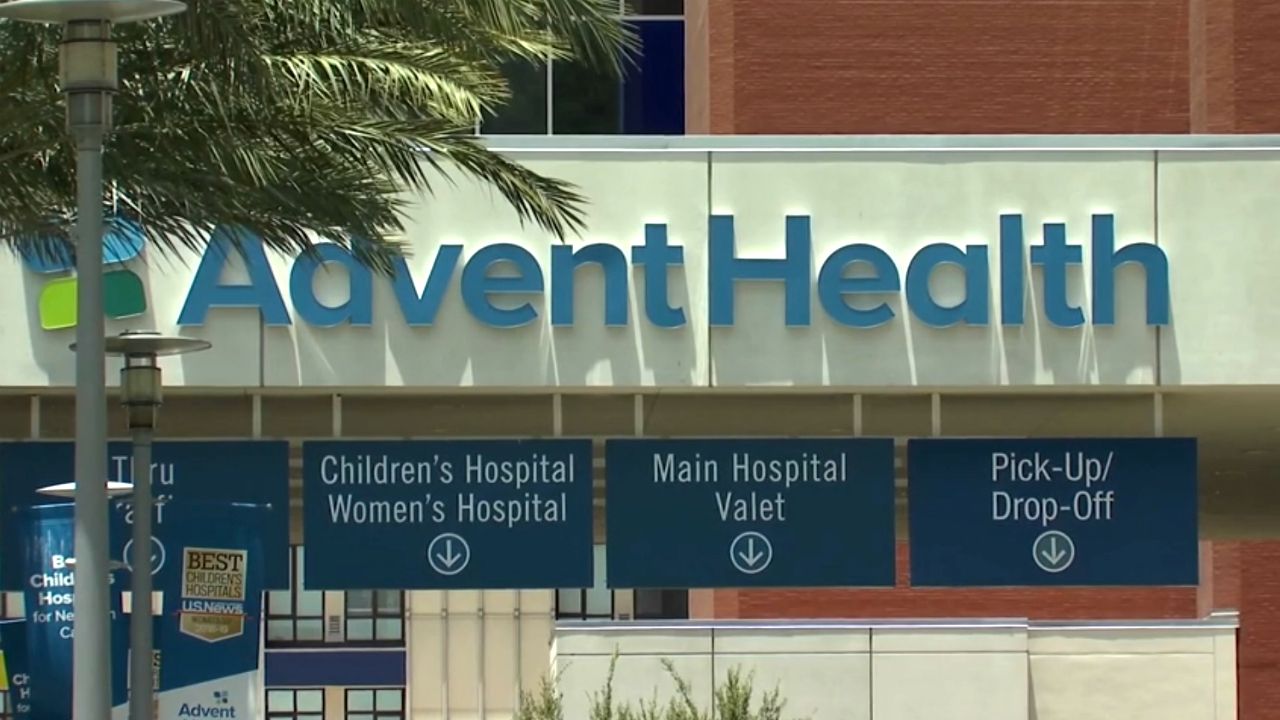Three manufacturers's COVID-19 vaccines have been federally approved for emergency use in the U.S. as of early March: Moderna, Pfizer-BioNTech, and Johnson & Johnson/Janssen. Moderna and Pfizer require two doses to be fully vaccinated and one dose for J&J. The CDC recommends a booster for all three vaccines, six or more months after the intitial shots for Pfizer and Moderna and two or more months after the initial shot for Johnson & Johnson.
As of January 5, 2022, over 8 million Floridians have been fully vaccinated.
Here are answers to some important questions that Floridians may have still have about the COVID-19 vaccines and their availability.
Who can get vaccinated against COVID-19?
The Food and Drug Administration has granted an Emergency Use Authorization for all people 5 and up to receive the Pfizer vaccine.
Minors must be accompanied by a guardian who must comnplete a consent form.
People 18 and older can get the Moderna or Johnson & Johnson vaccines.
Where in Florida can I get a vaccination?
COVID-19 vaccines are now widely available — often without an appointment — at retail pharmacies in the Tampa Bay area and across the state.
You can find a map of locations here.
What are the coronavirus variants currently in Florida, and what do I need to know about them?
The more contagious omicron variant of the coronavirus is now the dominant strain in Florida and across the U.S.
On July 27, the CDC revised its previous guidelines, urging fully vaccinated Americans to wear masks indoors in parts of the U.S. where cases are surging.
Pfizer said a third dose of its vaccine can boost protection against the all variants, but the data have not been peer-reviewd or published.
Are the available vaccines effective against the variant COVID-19 strains?
The CDC says that while no vaccines are 100% effective at preventing illness, evidence suggests they may make illness less severe.
According to an Associated Press analysis of government data, nearly all COVID-19 deaths in the U.S. now are in people who weren’t vaccinated.
When will children be able to get the vaccine?
Children 5-years-old and up are now eligible to get the Pfizer vaccine.
Kids 16 and older are eligible for a booster shot.
What's the difference between the available vaccine brands?
The Pfizer and Moderna vaccines were both shown to be about 95% effective and require two doses.
The Johnson & Johnson vaccine was shown to be 66% effective and requires one dose.
Will I need to be vaccinated if I have already had COVID-19?
At this time, the medical community thinks that reinfection may still be possible for those who have already contracted the coronavirus. There have been anecdotal reports of people getting infected twice. For this reason, it’s a good idea to get vaccinated even if you have already been sick with COVID-19.
A recent study from Columbia University indicates that the variants, on the other hand, "raise the specter that reinfections could be more likely."
If I take the vaccine, will I test positive for COVID-19?
None of the vaccines currently being used in the U.S. will return a positive coronavirus test result once administered. But because the purpose of the vaccine is to produce an immune response in the body, those who get vaccinated could possibly get a positive result on a test for COVID-19 antibodies.
After I get vaccinated, can I take off my mask?
The CDC on July 27 revised its earlier guidance due to rising case numbers. Fully vaccinated people are now urged to wear masks indoors in parts of the country — including Florida — where COVID-19 is surging.
What are some possible side effects/symptoms I can expect after getting the vaccine?
According to the CDC, some common side effects of the COVID vaccines are:
- Pain, redness or swelling at the injection site
- Tiredness
- Headache
- Muscle pain
- Chills
- Fever
- Nausea
The CDC recommends that you seek medical attention if:
- The redness or tenderness where you got the shot gets worse after 24 hours.
- Your side effects are worrying you or do not seem to be going away after a few days.
Read It: Florida Department of Health's Draft COVID-19 Vaccination Plan
Mark Boxley - Digital Media Producer
Mark is a longtime newspaper reporter who started his career at a small outlet in Bardstown, Ky., after graduating from the University of Kentucky with a BS in journalism. He is a former Kiplinger Fellow at Ohio State University and has worked as a journalist in Wisconsin, Kentucky, Tennessee, Ohio, and Florida. Mark became a digital media producer with Spectrum News in 2020.








